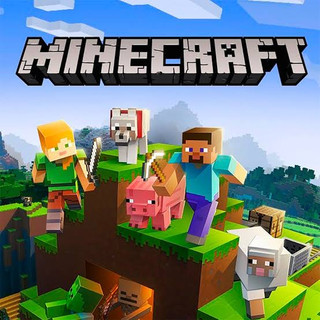NetEase granted 50 Million RMB & Injunction on Appeal in Minecraft Infringement Litigation in China
- IP News Bulletin
- Dec 4, 2022
- 2 min read
Minecraft is a 2009 sandbox game created by the Swedish company Mojang Studios. NetEase announced in May 2016 that it had obtained the exclusive right to operate the game in China, as well as the right to enforce any intellectual property infringement and unfair competition claims. In the same month, Shenzhen Mini Play Company released "Mini World" for Android, followed by the iOS and computer versions.
NetEase filed a lawsuit against Minecraft in the Shenzhen Intermediate People's Court in 2019, accusing multiple core elements of the game Mini World of plagiarism. NetEase specifically claimed that the overall screens of the two games are strikingly similar, resulting in copyright infringement and unfair competition.
Mini Play was ordered by the court to stop the unfair competition, remove the impact, and pay 50 million RMB in compensation. The Shenzhen Intermediate People's Court also ruled that "Mini World" violated Minecraft's copyright, ordering Mini Play to remove the infringing game elements and pay NetEase more than 21.13 million RMB. Both parties then filed an appeal with the Guangdong High Court.
The Guangdong Higher Court determined that the two games at issue are sandbox games, meaning that they only set basic game goals and rules and provided players with basic game resources or elements such as wood, food, creatures, and so on.
The virtual world allows players to freely explore and interact. Players can use the basic game resources preset in the game to create virtual objects, buildings, landscapes, and even game worlds by destroying, synthesising, and building. Minecraft primarily generates revenue through user fees, with over 3.36 billion downloads from various channels and over 400 million registered users since its launch.
The Guangdong High Court ruled that the overall screens of the two games are electronic works, or "audio-visual works" under the newly amended copyright law, but the similarities between the two are in the design of the game elements rather than the game screens. As a result, it denied NetEase's claim of copyright infringement.
Simultaneously, the court determined that Mini World and Minecraft are highly similar in terms of gameplay rules, with numerous overlaps in the details of game elements that have exceeded the limit of reasonable reference. Mini Play directly seized the key and core personalised commercial value of other people's intellectual achievements by plagiarising the design of game elements, and seized business opportunities by improperly obtaining other people's business benefits, which constituted unfair competition.
In determining the amount of compensation, the court determined that Mini Play, as the infringing party, should have relevant data of its business income on hand but refused to provide it to the court without justification, and should bear the legal consequences of an adverse presumption.
According to evidence from a third-party platform, Mini Play's profits from infringement far exceeded the amount of compensation requested by NetEase, so the award of 50 million RMB in compensation for unfair competition was upheld. The Court also ordered Mini Play to remove 230 infringing game elements from Mini World.








Comments